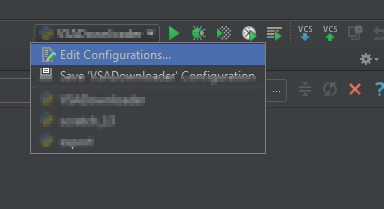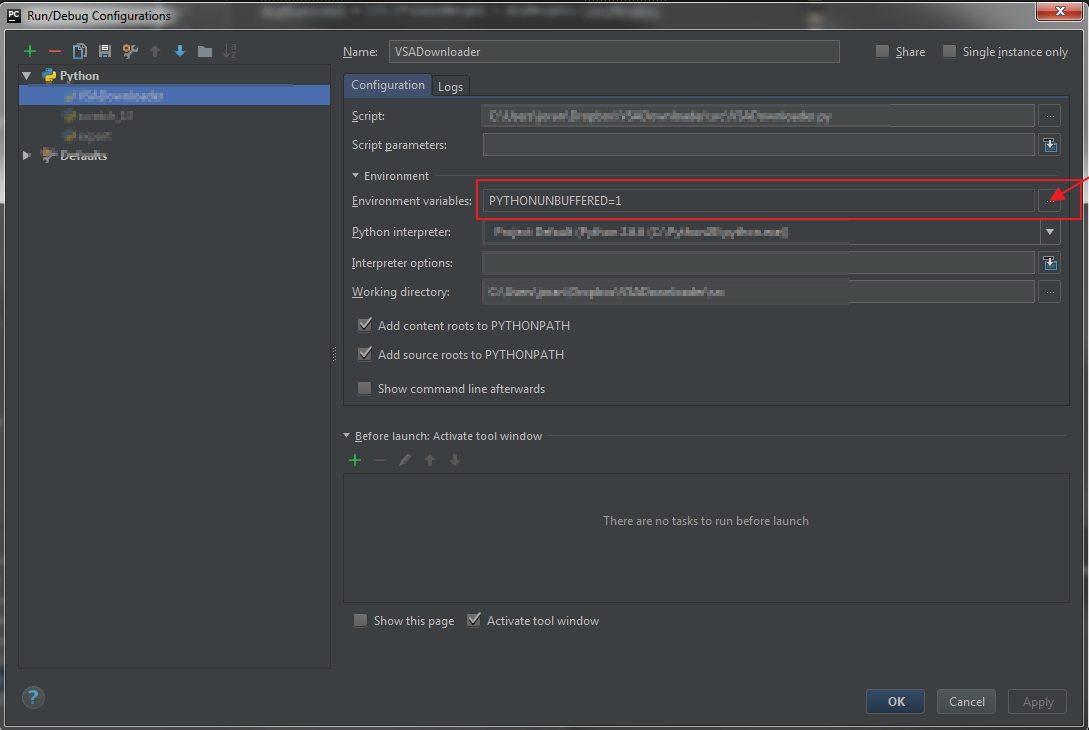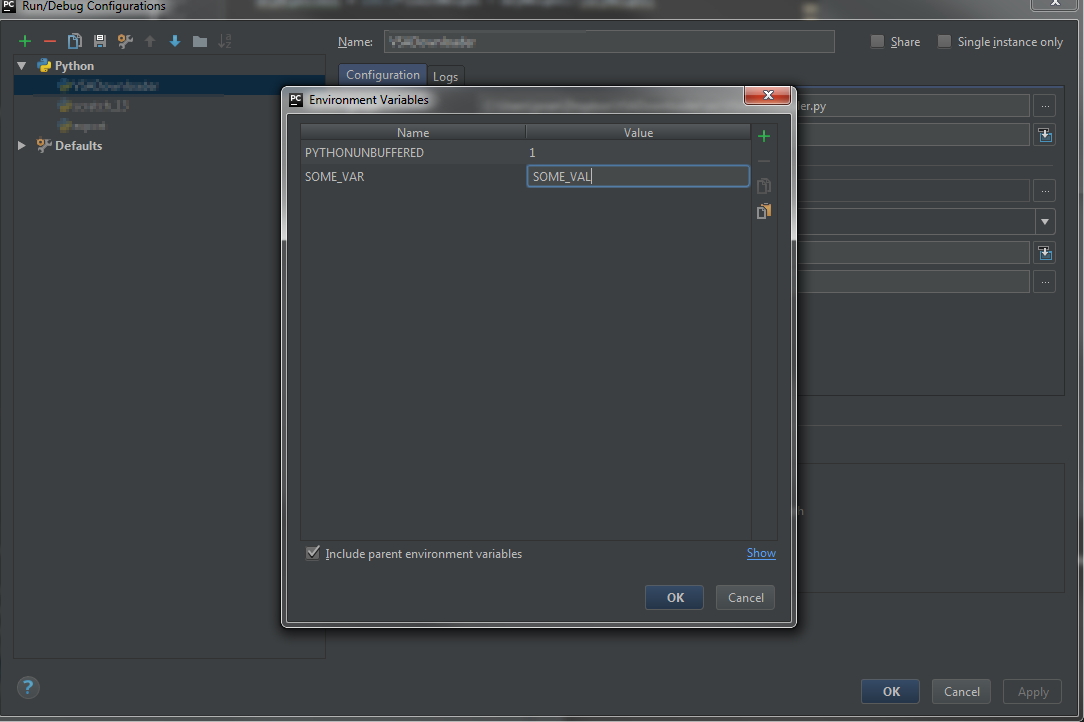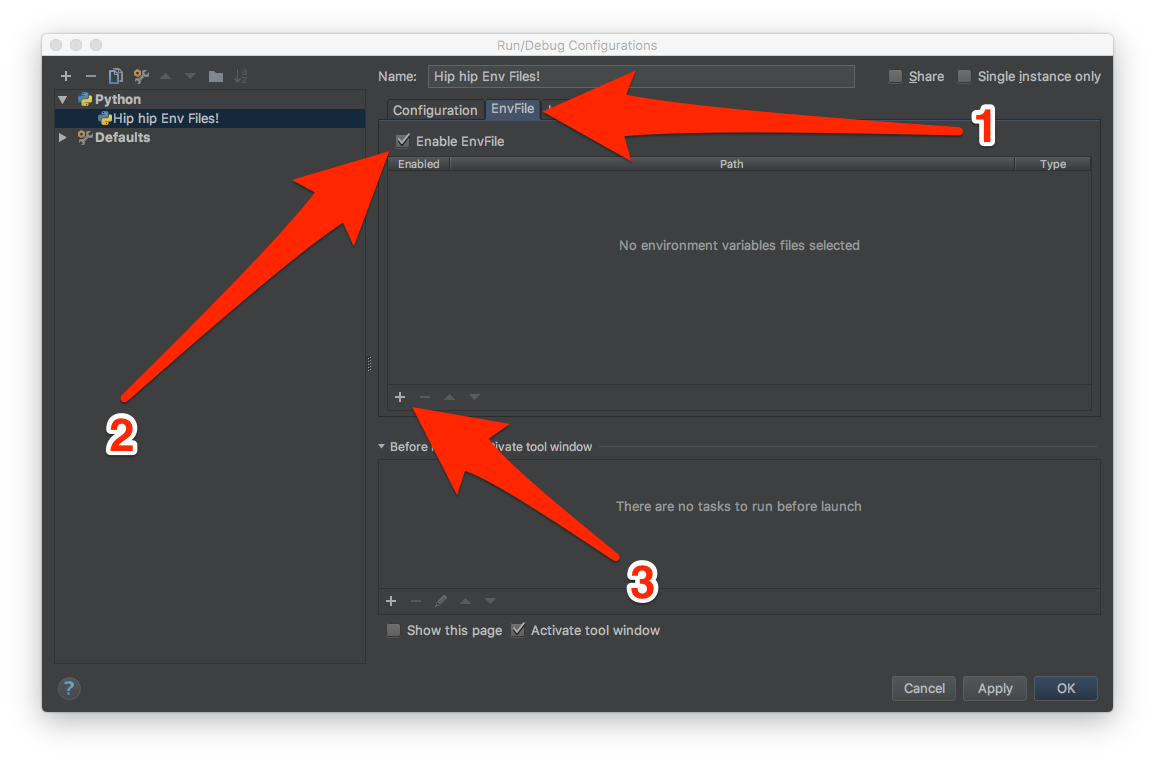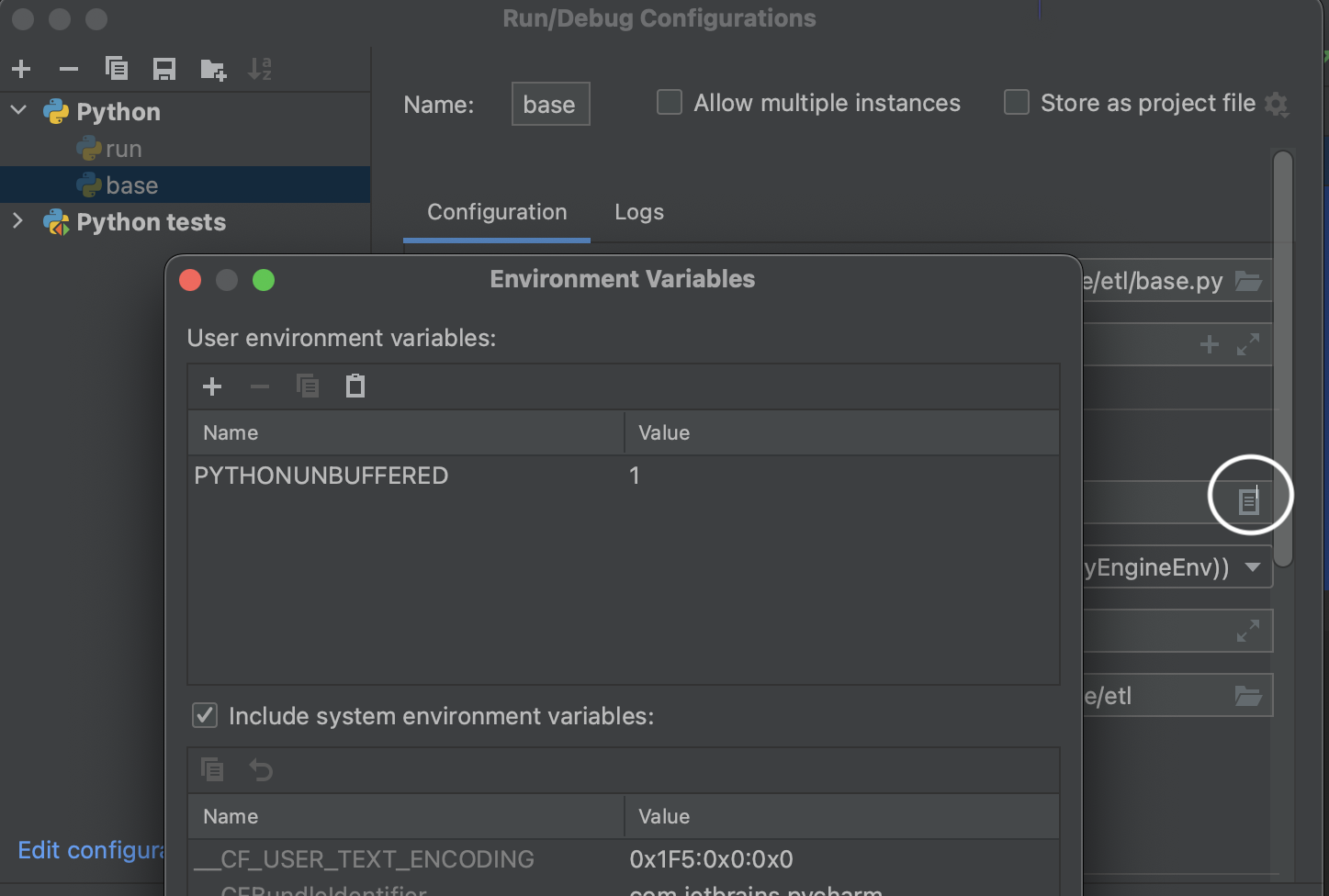I have started to work on a Django project, and I would like to set some environment variables without setting them manually or having a bash file to source.
I want to set the following variables:
export DATABASE_URL=postgres://127.0.0.1:5432/my_db_name
export DEBUG=1
# there are other variables, but they contain personal information
I have read this, but that does not solve what I want. In addition, I have tried setting the environment variables in Preferences-> Build, Execution, Deployment->Console->Python Console/Django Console, but it sets the variables for the interpreter.

